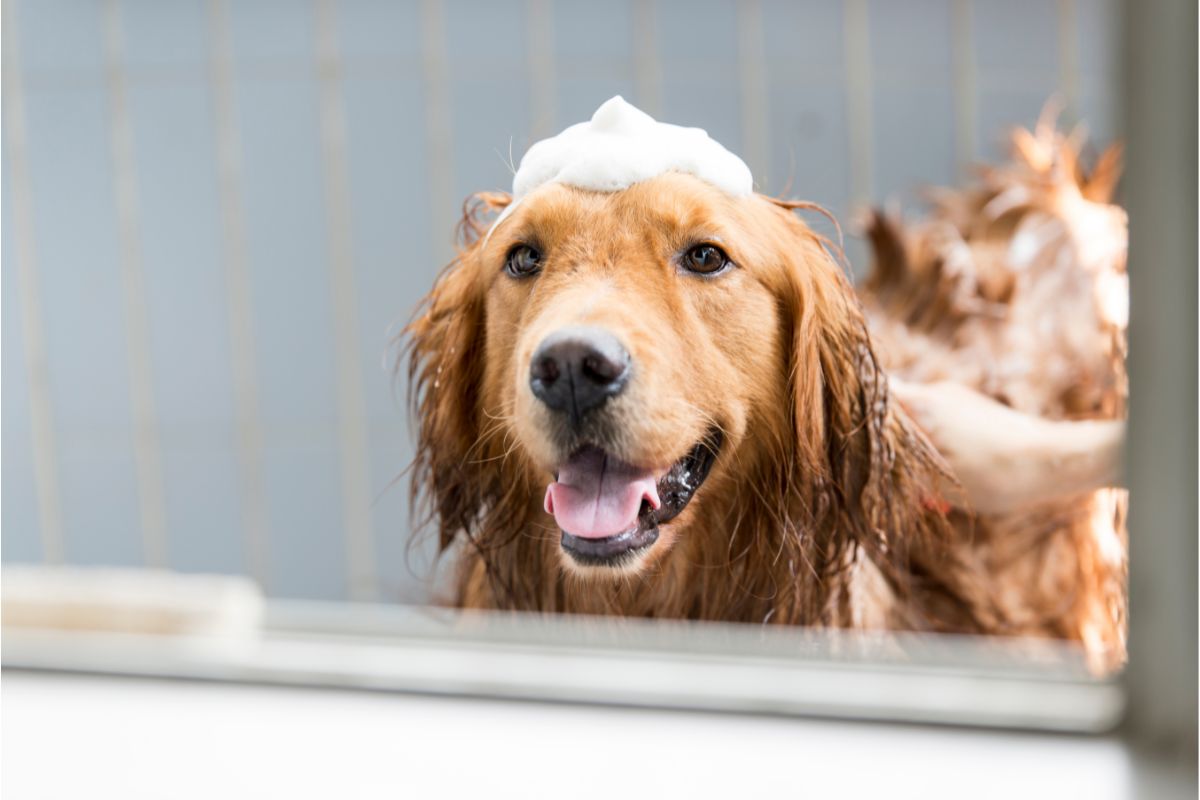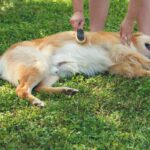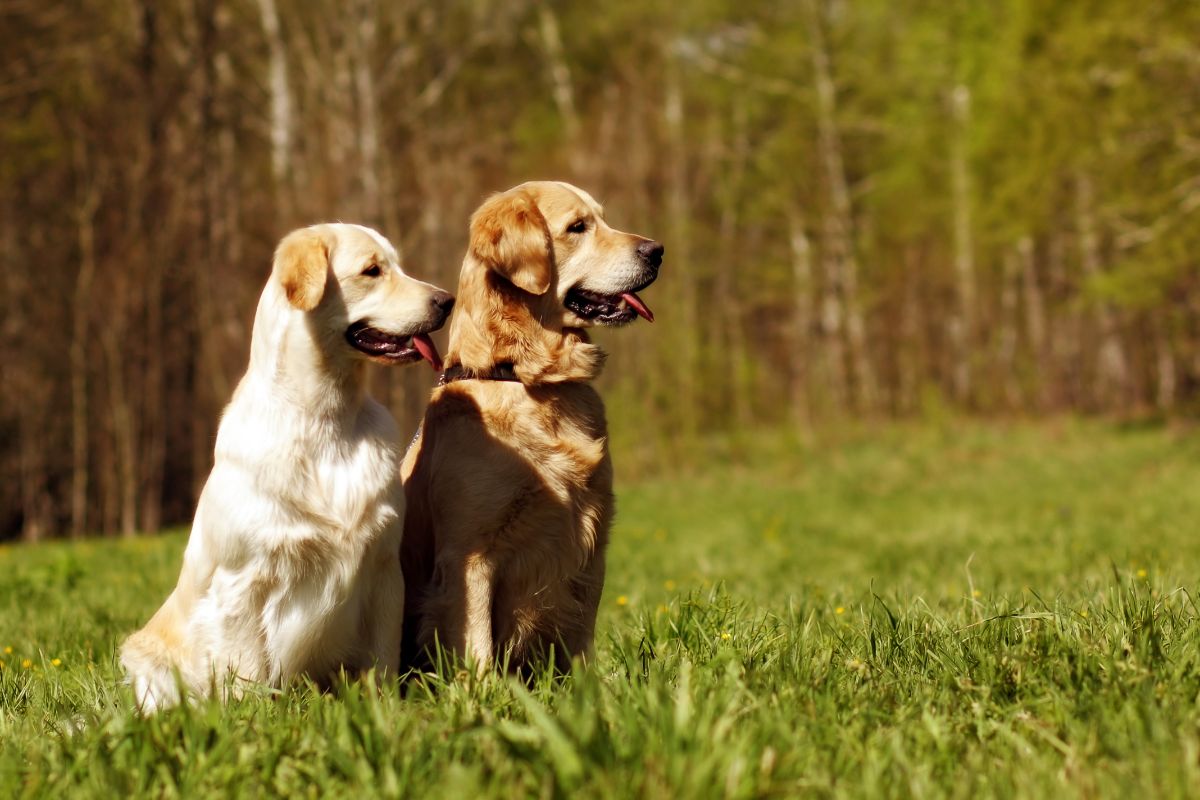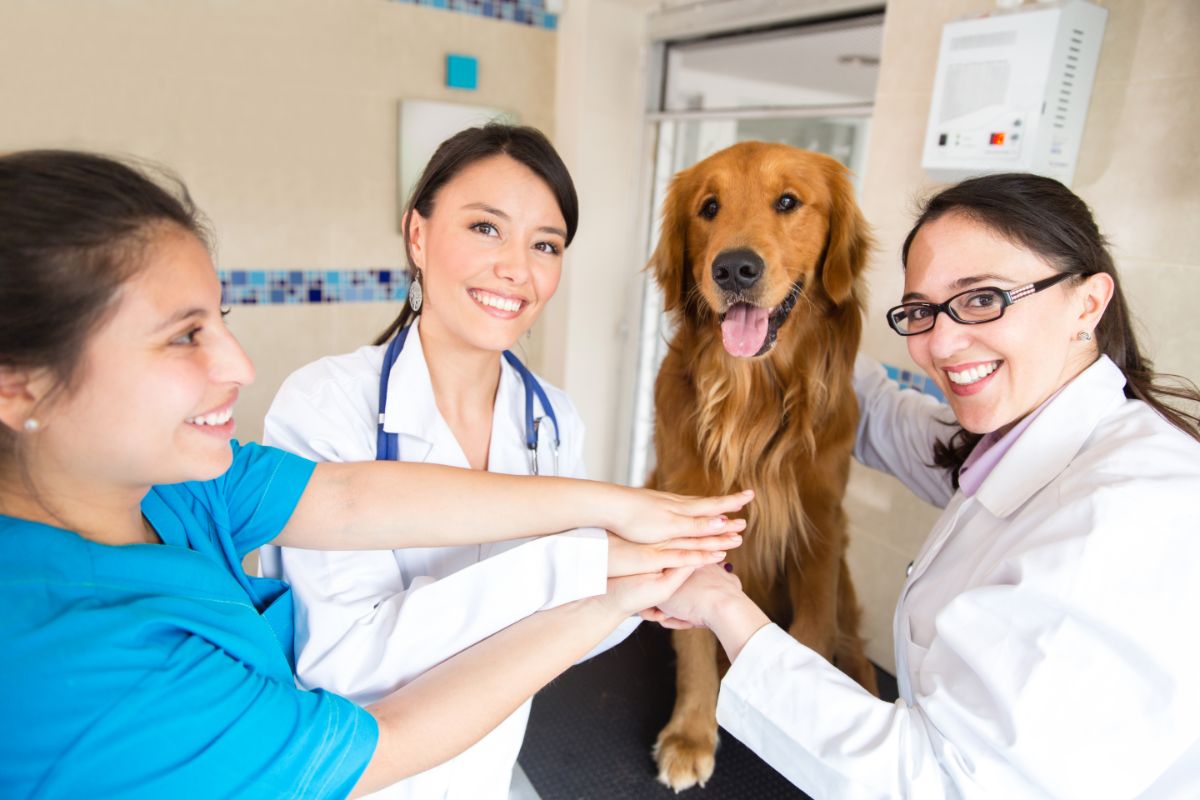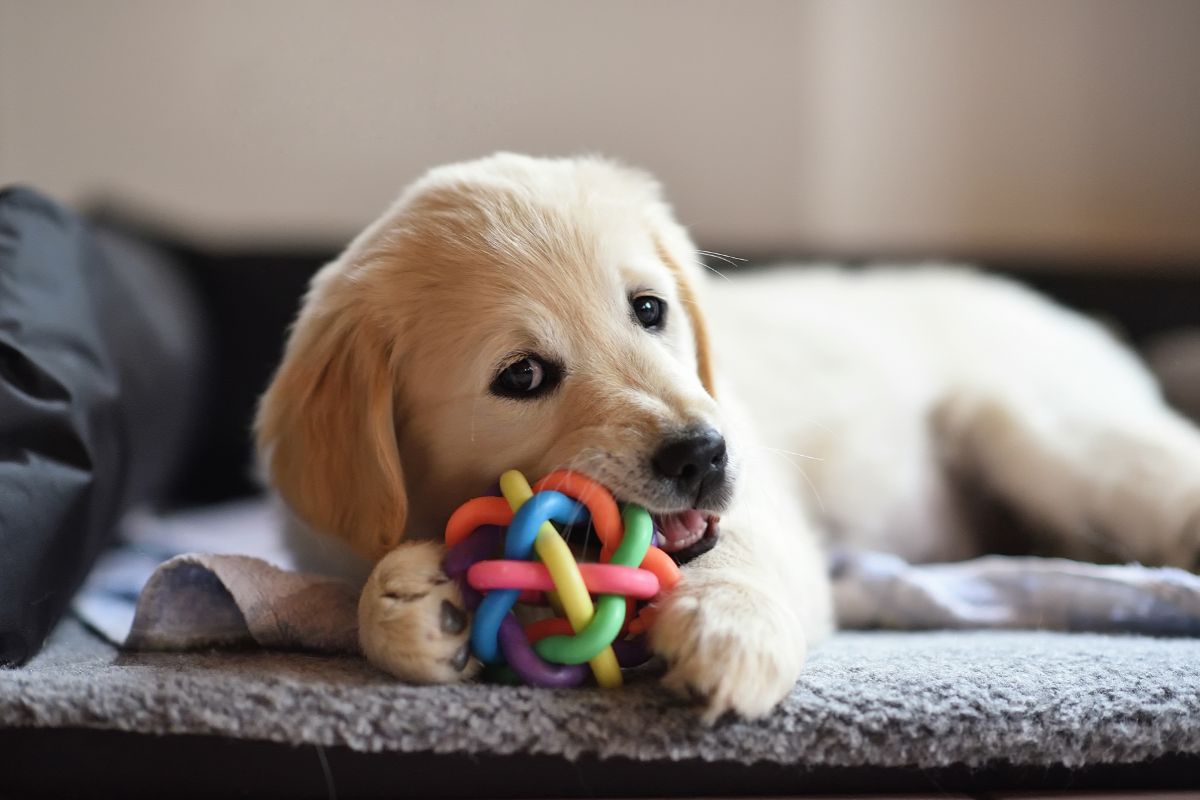We all want our Golden Retrievers to be the picture of health, but sometimes, those extra treats and lounging sessions can lead to a bit of extra fluff on our furry friends.
If you’ve noticed your Golden Retriever tipping the scales a bit more than usual, you’re not alone.
In this article, I’m diving into the world of canine fitness, focussing on those loveable Goldens who may need a little help shedding some pounds.
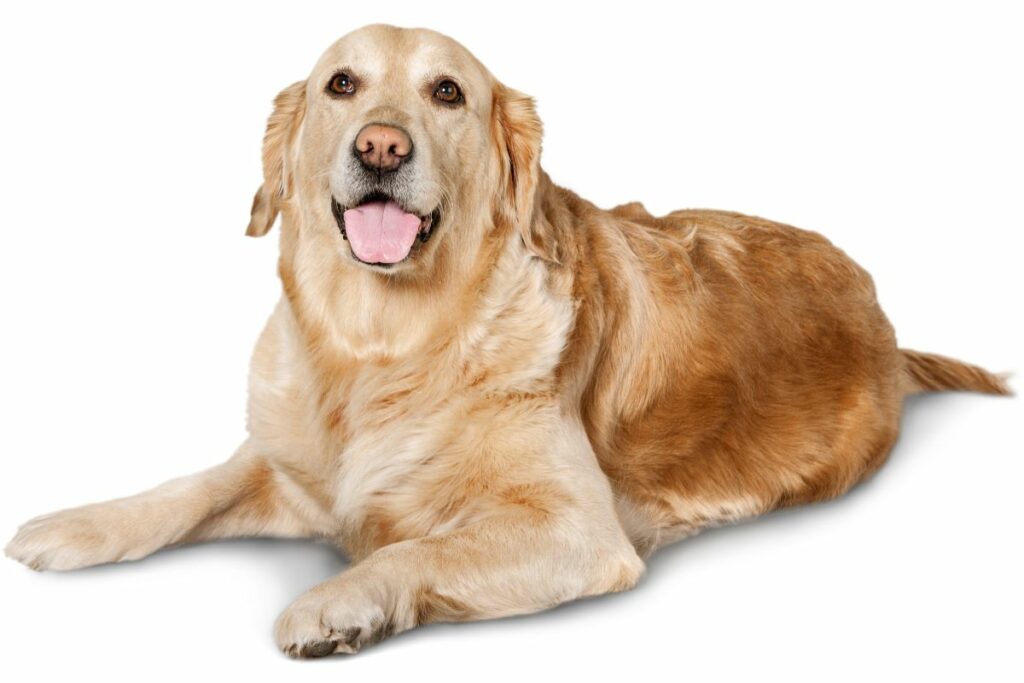
I’ll explore practical strategies to address canine obesity, sharing tips on nutrition, exercise routine, and lifestyle adjustments that can make a world of difference.
So, grab a treat (for you, not your pup!), kick back, and let’s figure out how to help your Golden Retriever lose that fluff.
What Is A Healthy Weight For A Golden Retriever?
First up, we need to know how to figure out if your Golden Retriever is overweight. It’s not about fitting into some canine beauty standard; it’s about ensuring that your furry companion is thriving.
Generally, adult male Goldens weigh between 65 and 75 pounds, while females typically fall within the 55 to 65 pound range. However, these numbers can vary based on factors like age, activity level, and individual differences.
The best gauge is your pup’s overall well-being – a healthy weight means you can feel their ribs without excess padding, and they have a noticeable waist when viewed from above.
It’s like finding the sweet spot where they’re energetic, playful, and, most importantly, able to groom themselves properly.
Remember, if your Golden is overweight – you’re not alone. This is a breed that loves food, and you won’t be the first or the last owner to have a dog that’s a little on the heavy side.
What’s important is recognizing when it’s a problem and doing what you can to help your Golden be healthier.
While fat Golden Retrievers are undeniably cute and cuddly, carrying too much weight for too long can prove to be a health risk.
Diet Changes
Once you know that your Golden is overweight, you might be wondering what you can do about it.
The first thing that you will probably need to adjust is your dog’s diet.
To kick things off, you’ll need to determine your dog’s ideal daily caloric intake. Generally, for weight maintenance, it’s around 30 calories per pound of body weight.
If your Golden Retriever is tipping the scales, you’ll need to make some adjustments.
Consult your vet to nail down the precise calorie count for your puppy’s weight loss goals.
Once you’ve got that number, it’s time to consider portion control.
Yes, just like humans, dogs can benefit from watching their portions. You might need to cut back on the kibble, but fear not – we’re not advocating for hungry pups!
Swap out high-calorie treats for healthier alternatives, and be mindful of extras.
It’s not about deprivation; it’s about finding that paw-some balance to keep your Golden Retriever trim, fit, and ready for tail-wagging adventures.
Exercise Routines
Now, let’s talk about exercise routines!
Getting your Golden up and moving is a key ingredient in their weight loss recipes. But fear not; it doesn’t mean you must transform into a doggy personal trainer overnight.
Start with a manageable changer – longer walks, an extra game of fetch, or even a simple game of tug-of-war can make a big impact.
Find activities that both you and your Golden enjoy, turning exercise into quality bonding time.
Consider mixing it up with aquatic adventures if your dog enjoys the water, particularly if your dog is already on the heavier side. Swimming is an excellent, low-impact exercise that’s easy on the joints – perfect for older doggos.
For the social butterflies, dog parks are fantastic for interactive play and burning off excess energy.
Remember, consistency is key. Establish a routine that fits both your schedule and your dog’s enthusiasm level.
And don’t forget the power of positive reinforcement – reward good behavior with praise or small, low-calorie treats to keep them motivated.
Before diving into a new fitness plan, checking in with your vet is always a good idea. They can provide tailored advice based on your Golden’s health and specific needs.
So, grab that leash, and let’s make exercise a fun and beneficial part of your pup’s routine.
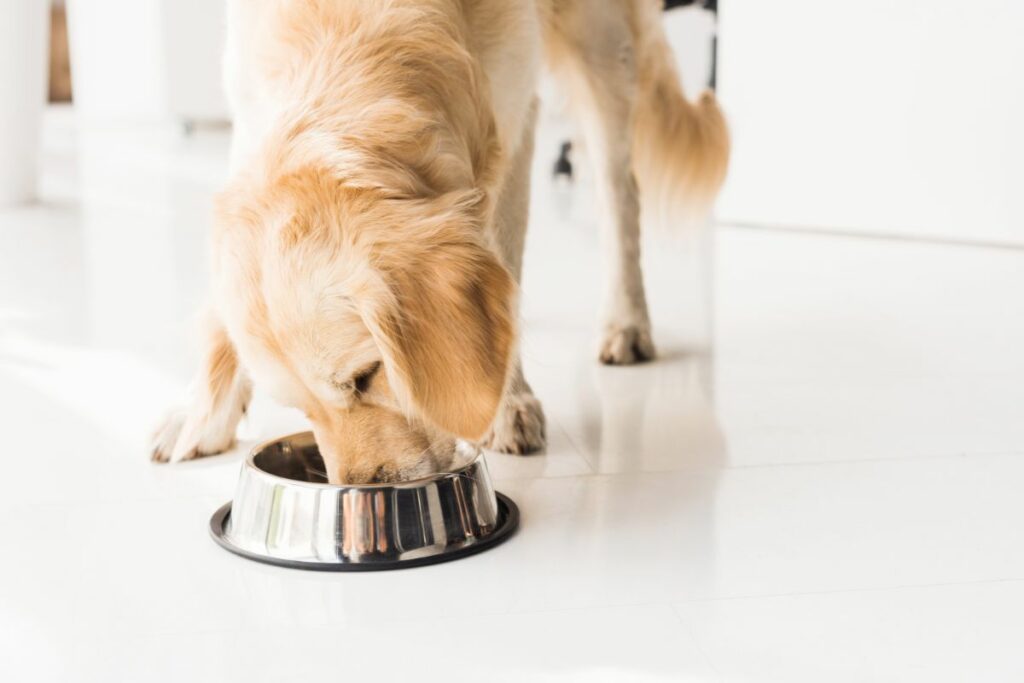
Mental Stimulation
Now that we’ve got our paws moving, let’s talk about mental stimulation.
Just like us, our Golden Retrievers need more than just physical exercise; they crave mental challenges, too.
Engaging your pup’s mind not only fights boredom but also burns some extra calories.
Consider introducing puzzle toys into their routine – these not only provide mental stimulation but turn meal times into an exciting game.
I’d highly recommend snuffle mats or slow feeders to make your Golden work for their food and keep their mind active.
Incorporating obedience training sessions not only sharpens their skills but also strengthens the bond between you and your furry companion.
Another great mental workout is changing up their daily walks.
New routes and different scents add an extra layer of excitement to their routine. Remember, a happy, well-exercised mind contributes to a healthier, well-rounded Golden Retriever.
The Final Woof
As we wrap up, remember that it’s all about the little changes that add up to a healthier, happier pup.
Celebrate progress, whether big or small and understand that the journey to better health is ongoing.
Consistency is key, and with your dedication, your four-legged friend will be strutting their stuff with newfound vitality.
Keep those tail-wagging walks a regular thing, be mindful of treats, and consult with your vet to fine-tune your pup’s diet.
It’s a team effort, and you’ve got this! Your commitment to your Golden’s well-being is the foundation for a longer, more joy-filled companionship.
Frequently Asked Questions
Look for visible signs such as reduced waistline, difficulty feeling ribs, or a noticeable change in energy levels. Your vet can provide a professional assessment.
Yes, obesity can lead to various health issues, including joint problems and diabetes. Regular vet check-ups are crucial to monitor and address potential concerns.
Aim for a gradual weight loss of 1-2% per week. Rapid weight loss can be unhealthy and should be supervised by a veterinarian.

